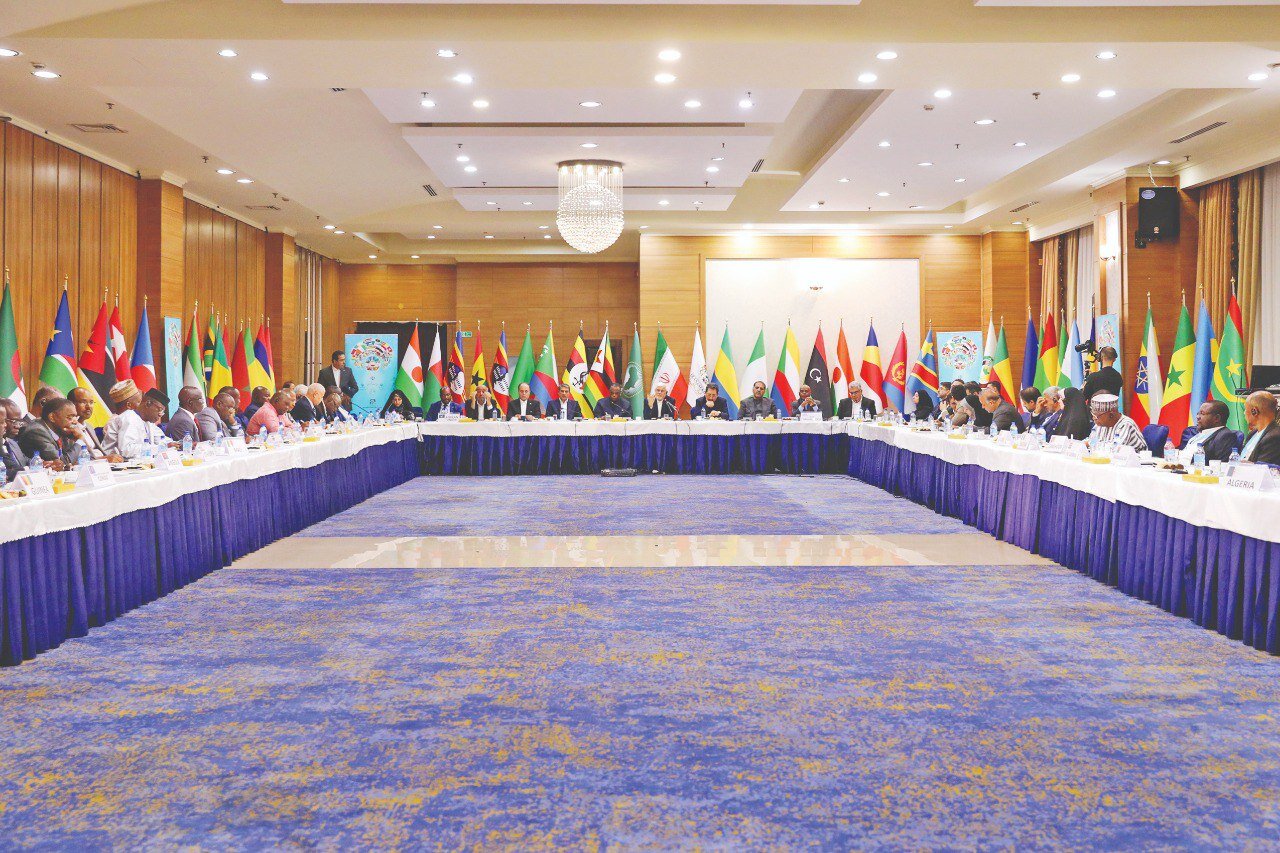Why is Africa important to Iran?
Hundreds of African traders, officials convene in Tehran and Esfahan following the Iran-Africa Summit

TEHRAN – It's rare to find two regions with a completely unblemished history of ties. Most have experienced friction, and negative perceptions of foreign countries are common all around the world. When it comes to Iran and Africa, however, centuries of interaction have, for the most part, been marked by an absence of any major hostility.
This has created a remarkably positive dynamic between Tehran and African capitals, a dynamic with considerable potential that both sides are eager to unlock, as demonstrated by the Third Iran-Africa Economic Cooperation Conference held in Iran last week.
For several days, over 700 traders and officials from 38 African countries have immersed themselves in Iranian commerce and culture in Tehran and the industrial hub of Esfahan. Alongside the Iran-Africa summit, the delegates are participating in the Iran Expo, the country’s largest trade event, with a packed schedule of specialized meetings, panels, and high-level engagements.
Iran invested almost a year in planning the summit, a foreign ministry source told the Tehran Times. The source said Iran’s meticulous and dedicated planning for the event reflects the high priority it places on its ties with Africa.
The last major official interaction between Iran and Africa happened in 2023, when the late Iranian President Ebrahim Raisi embarked on a small tour of Africa, meeting with leaders in Kenya, Zimbabwe, and Uganda. The president’s sudden passing in 2024 and the unprecedented Israeli aggression in the region – still ongoing to some extent – stymied more direct engagements in the months following the tour.
While Tehran’s heightened focus on relations with Africa has only been palpable in recent years, when it decided it should pour more efforts into strengthening ties with friendly and like-minded countries, Iranian leaders have always had positive feelings towards Africans, especially since the Islamic Revolution took place in 1979. Imam Khomeini, the founder of the Islamic Republic, was an avid supporter of anti-colonial and liberation movements in Africa. He also paid special attention to the Muslim population on the continent, and believed the young religious African people must be able to foster deeper connections with fellow Muslims in West Asia.
Imam Khomeini’s successor, Ayatollah Seyyed Ali Khamenei, has also spoken fondly of Africans in several of his speeches. For him, too, the African people’s history of fight against oppression is respectable and inspiring, and the rising prominence of the region attractive.
Javad Dehghan Haghighi, director of Africa headquarters at Iran’s foreign ministry, says there are several more reasons why Iran attaches significance to ties with African countries in 2025.
“The relationship between Iran and Africa has been one of mutual respect,” he said during an interview with the Tehran Times. “Both Iranians and Africans have positive perceptions of each other. This is not the same for many countries. The West’s legacy in Africa, for instance, will always be marred by colonialism and exploitation.”
The official explained that Iran can share its technological and industrial know-how with Africa. It can also personally take charge of projects in different fields. What Africa can give Iran is also plenty. “One important area where Iran and Africa can cooperate is agriculture. Many people think the world’s youngest continent is dry. But huge parts of it actually see significant rainfall and have extremely fertile soil.” Iran itself has been grappling with droughts for several years.
Africa’s vast mineral resources and large consumer market are also attractive to Iran, Dehghan added.
The Tehran Times understands Iran is preparing to host more African delegations for next year’s summit.
Leave a Comment